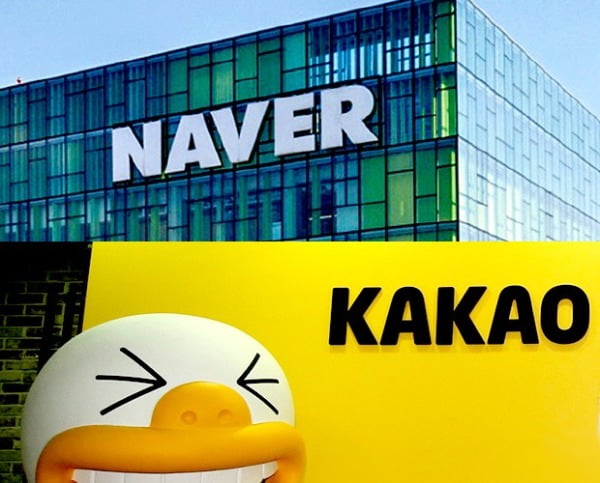
On Sept. 8, Naver and Kakao’s stock price showed a sharp decline of 7.87% and 10.06%, respectively. The cause of the decrease was an announcement made by the financial arms on Sept. 7 about regulations on Big-tech. Big-tech companies are prevailing IT firms, including Naver and Kakao. They flourished amid the non-face-to-face era triggered by COVID-19. However, their excessive market dominance and overuse of power became a problem.
On Sept. 7, the financial arms judged Naver Financial and Kakao Pay’s recommendation on funds, insurance, and other financial products offered to customers on their platforms as an act of intermediation, rather than advertising. When these recommendations are classified as brokering, companies must obtain an intermediary license; otherwise, the sale of financial products on the platforms is against the law.
The Korean government and financial arms are trying to regulate the Big-tech companies for two reasons. First, monopoly issues. Platform operators provide free and convenient services. However, once they hold a monopoly of the market, they might switch to paid services. This might lead to other problems such as major player issues. The ones who produce the actual goods and labor should be the major players in the market. However, they might end up being subordinate to the Big-tech companies that hold a monopoly on the market, paying excessive brokerage commissions. Second, algorithm issues. The recommendation algorithms may offer similar content, only exposing what the company wants to show.
On the other hand, some point out that the Korean government has created an uneven playing field in the early days in favor of the Big-tech companies, under the name of innovation. The Korean government wanted to nurture large domestic platform firms like large foreign Big-tech companies such as Google and Apple. The Big-tech companies argue that they provide great convenience with high efficiency. They worry that regulations might spoil creative innovations that would have made people’s lives more convenient and efficient.
Big-tech companies should be proud of the innovation they have achieved. However, they should not ignore the dark shadow behind the brilliant innovation. The Korean government should carefully consider regulations so that there is no excessive compensation or damage to either side.


